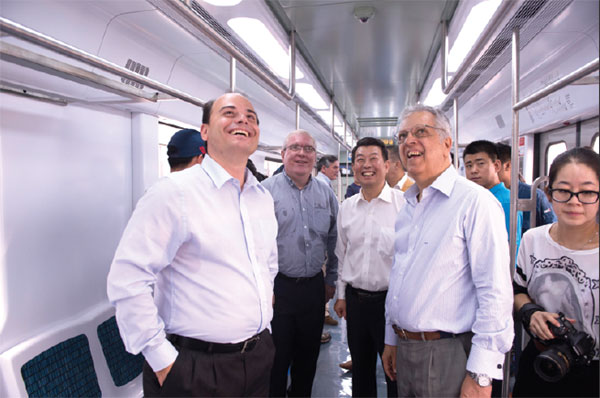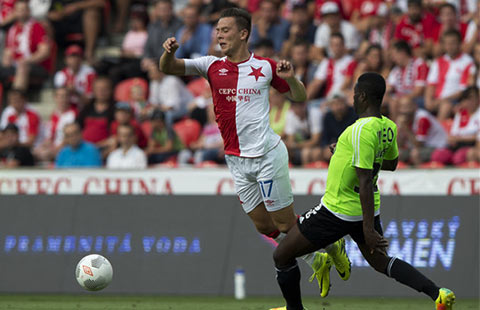Backing Brazil beyond Olympics
By Zhong Nan in Beijing and Liu Mingtai in Changchun (China Daily) Updated: 2016-08-01 07:48
|
Brazilian transport officials inspect an electric multiple unit made by CRRC Changchun Railway. CRRC Changchun has provided 100 EMUs to Rio de Janeiro's rail systems. Provided to China Daily |
The subway trains are made of A-type stainless steel and boast a far more compressive load than that of an ordinary train. This means it can ensure passenger safety in the case of any head-on collision with an 80-ton truck running at a speed of 36 km per hour.
Feng Hao, a rail transportation researcher at the National Development and Reform Commission, said compared with car-dominated urban traffic systems, urban light rail services generate less emissions and offer lower costs. "They are ideal for mass transportation systems, especially in major cities or tourism destinations."
The company now has a technical team of 60 people in Rio to oversee operations ahead of the Games. They will stay there until the end of August. This is the first time that a Chinese trainmaker has provided transportation service outside China for the Olympic Games.
Like CRRC Changchun, Chinese construction machinery makers such as XCMG, fresh from robust growth in the domestic market, are geared up to take advantage of the huge opportunities coming their way in Brazil's vast infrastructure market. Again, they have Rio 2016 to thank for.
XCMG announced earlier this month that it will add $99.7 million to its branch in Brazil to enhance the production capability and improve its asset structure. It will also lower the risk caused by currency fluctuations, besides adding more local dealerships and distribution warehouses. It will also boost its spare parts sales and leasing businesses in Brazil.
Cui Jisheng, general manager of XCMG (Brazil) Co Ltd, said the 2014 FIFA World Cup and the 2016 Olympic Games certainly have offered huge opportunities to Brazil's construction equipment makers.
"Chinese construction machinery makers are set to become some of the largest beneficiaries of this transformation in Brazil," he said.
Indeed, Brazil became the largest importer of Chinese truck cranes in 2013. Chinese crane enterprises claimed a 91 percent market share in Brazil in 2015, according to data from the China Council for the Promotion of International Trade.
"XCMG (Brazil) will set up direct-service platforms for its customers. Such platforms will send customers the latest product information, while specialists in different places will offer advice on saving fuel, maintenance and component replacement over the next three years," Cui said.
Cui further said even though the Olympic Games run from Aug 5 to 21, Brazil's demand for infrastructure will continue to attract Chinese companies over the next decade.
The Brazilian economy went into a recession in 2015, but the country witnessed a surge in mergers and acquisitions by overseas companies of late. Some 285 big-ticket deals were sealed, and foreign direct investment reached $70 billion, partly thanks to the country's fast-growing sport-driven economy.










